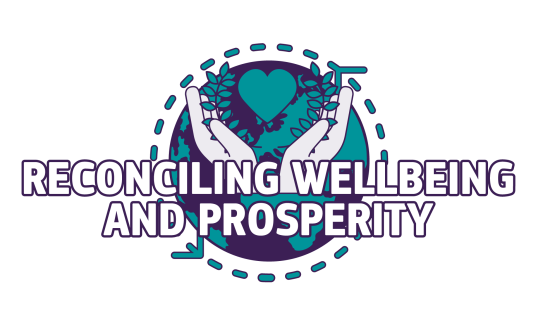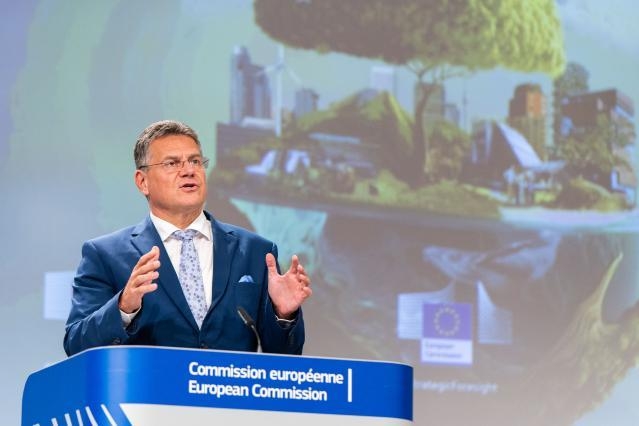2023 Strategic Foresight Report: sustainability and wellbeing at the heart of Europe’s Open Strategic Autonomy
On July 6, 2023, the European Commission presented the 2023 Strategic Foresight Report, which analyses how to put ‘sustainability and people’s wellbeing at the heart of Europe’s Open Strategic Autonomy’ and suggests ten concrete actions to achieve this aim.

The EU is engaged in a profound and ambitious transition to achieve climate neutrality and sustainability in the next few decades. This sustainability transition will be key to strengthen the EU’s Open Strategic Autonomy, ensure its long-term competitiveness, uphold its social market economy model and consolidate its global leadership in the new net-zero economy. To succeed, the EU will need to address several challenges and make choices that will affect our societies and economies at an unprecedented pace and scale.
The 2023 report provides an overview of the challenges EU faces and proposes ten areas for action to achieve a successful transition. To equip policymakers with economic indicators which also consider wellbeing, it proposes to adjust Gross Domestic Product (GDP) to take account of different factors such as health and the environment. This approach will bolster the EU’s Open Strategic Autonomy and global standing in its pursuit of a resilient net-zero economy.

Press conference by Maroš Šefcovic, Vice-President of the European Commission, on the 2023 Strategic Foresight Report 2023
Overcoming key social and economic challenges
As it goes through the sustainability transition – which encompasses both economic and social sustainability – the EU is facing several challenges. For example:
- Evolving geopolitical shifts are shaping public opinion and how governments across the globe act, challenging international cooperation on global issues, such as climate change or the energy transition.
- The need for a new economic model, focused on the wellbeing of people and nature, decoupling economic growth from resource use and shifting to more sustainable production and consumption. Up to 75% of Eurozone businesses are highly dependent on natural resources. Economic, social and environmental sustainability are inextricably linked.
- Growing demand for adequate skills for a sustainable future. The availability of workers equipped with appropriate technical and soft skills will be crucial for the EU’s competitiveness: 85% of EU firms today lack staff with the competences needed to navigate the green and digital transitions.
- The sustainability transition requires unprecedented investments. Achieving it will depend on securing sufficient funding both from the public and private sectors.
Ten areas for action
The report identifies ten areas where EU policy response is needed to ensure that the sustainability transition remains focused on the wellbeing of people and society:
- Ensure a new European social contract with renewed welfare policies and a focus on high-quality social services.
- Deepen the Single Market to champion a resilient net-zero economy, with a focus on Open Strategic Autonomy and economic security.
- Boost the EU’s offer on the global stage to strengthen cooperation with key partners.
- Support shifts in production and consumption towards sustainability, targeting regulation and fostering balanced lifestyles.
- Move towards a ‘Europe of investments’ through public action to catalyse financial flows for the transitions.
- Make public budgets fit for sustainability through an efficient tax framework and public spending.
- Further shift policy and economic indicators towards sustainable and inclusive wellbeing, including by adjusting GDP for different factors.
- Ensure that all Europeans can contribute to the transition by increasing labour market participation and focusing on future skills.
- Strengthen democracy with generational fairness at the heart of policymaking to reinforce the support for the transitions.
- Complement civil protection with ‘civil prevention’ by reinforcing the EU’s toolbox on preparedness and response.
Next steps
The Foresight Report 2023 will be presented to EU Member States at the General Affairs Council of 10 July. Together with work conducted on foresight by the Spanish Presidency of the Council of the EU, the Commission’s report is also expected to inform the discussion of Leaders at the informal European Council in Granada in October 2023.
In November 2023, the Commission will co-organise, together with the European Parliament, the annual European Strategy and Political Analysis System (ESPAS) conference. It will be an opportunity to test and discuss key findings of the 2024 report on interinstitutional global trends jointly prepared by EU institutions, and reflect on the way ahead.
Background
Strategic foresight supports the Commission on its forward-looking and ambitious path towards achieving President von der Leyen’s six headline ambitions. As of 2020, annual Strategic Foresight Reports are prepared to inform the Commission’s priorities, the Commission Work Programme and its multi-annual programming.
This year’s report builds on earlier editions, which focused on resilience as a new compass for EU policymaking (2020), on the EU’s Open Strategic Autonomy (2021) and on twinning between the green and digital transition (2022). The analysis presented in the 2023 Strategic Foresight Report is based on the inclusive and participatory foresight exercise conducted by the Joint Research Centre, complemented by broad consultations with Member States, other EU institutions in the framework of the ESPAS and with citizens through a call for evidence published on Have Your Say. The results of the foresight exercise are presented in the Joint Research Centre’s Science for Policy report: ‘Towards a fair and sustainable Europe 2050: social and economic choices in sustainability transitions.’
For more information
2023 Strategic Foresight Report: Sustainability and people’s wellbeing at the heart of Europe’s Strategic Autonomy
2023 Strategic Foresight Report webpage
Questions and answers on the 2023 Strategic Foresight Report
Website on strategic foresight
Original post: https://ec.europa.eu/commission/presscorner/detail/en/ip_23_3623
